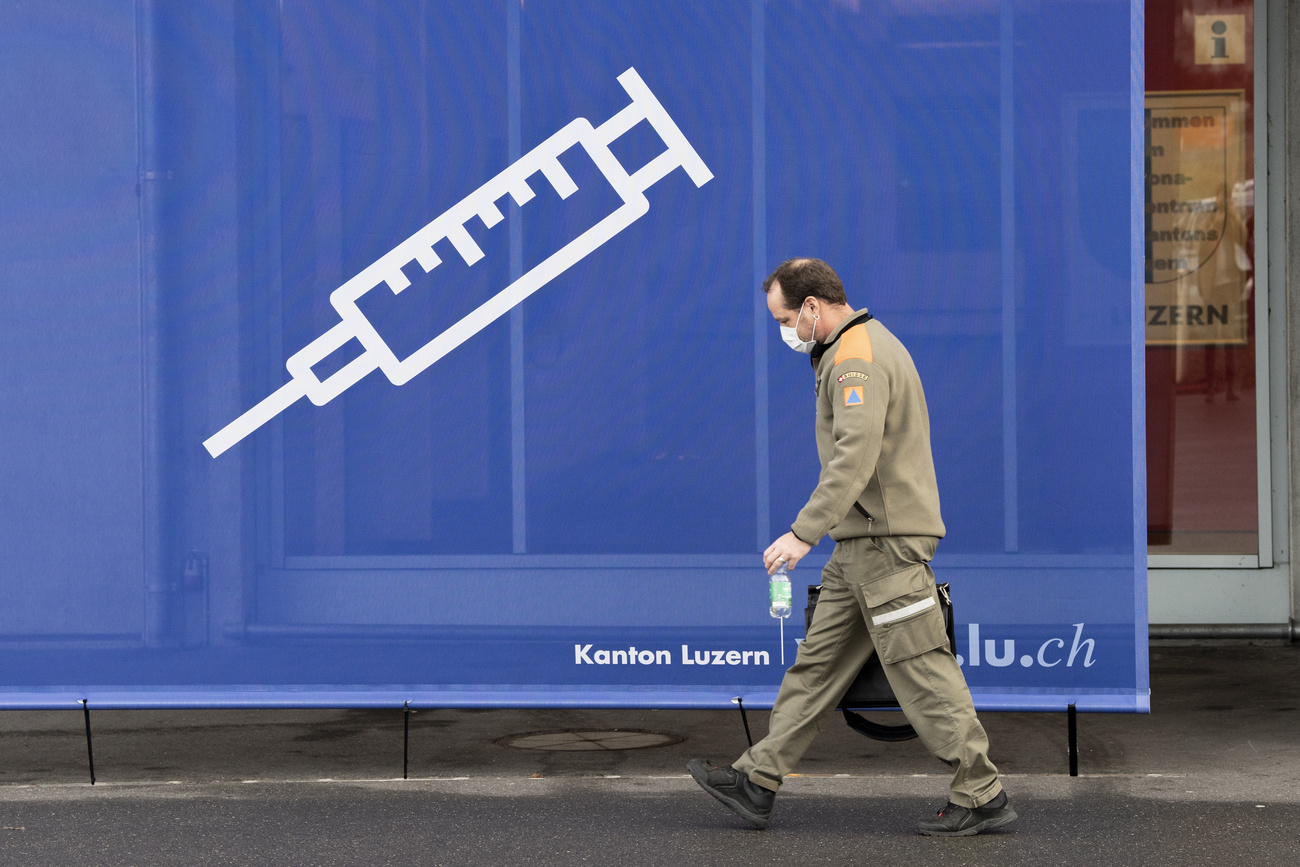
Vaccine delays cost Switzerland up to CHF100 million per day

Delivery delays from vaccine manufacturers mean half as many people in Switzerland will be vaccinated as planned in February. However, Interior Minister Alain Berset remains confident that the goal of vaccinating everyone who wants to by the summer can still be reached.
According to the German-language paper NZZamSonntagExternal link, only around 650,000 vaccinations will be possible in February compared to the original goal of 1.3 million. The federal government quietly changed its vaccination target last week after both Pfizer/BioNTech and Moderna announced delivery delays.
On January 21, Interior Minister Alain Berset announced that it should be possible to administer 525 doses for every 100,000 people every day – seven days a week. Last week, a confidential letter sent from the federal health office to the cantons scaled this back to 380 vaccinations for every 100,000 per day and only on weekdays.
The slower than expected roll-out not only has health consequences but also a massive impact on the economy.
“If the economic situation is normalised one day earlier through vaccinations, Switzerland will save up to CHF110 million ($114 million),” states the Swiss National Covid-19 Taskforce in a new study.
Making up for lost time
In an interview with the same paper, Berset said that although fewer people than planned will be vaccinated in February, he believes that it will still be possible to vaccinate everyone who wants to by the summer.
“We now have the problem that we are receiving some deliveries later than planned. This is annoying, but we have to live with it and constantly adapt,” he told the paper.
He added that the country will make up for the deficit. “For the campaign to be successful, it is not decisive whether we have vaccinated the first 10% of the population at the end of January or the end of February. It is important that we are quick in the second quarter when the large quantities of vaccine arrive.”
More
Based on the letter sent to the cantons on January 27, it will be difficult to reach the 650,000 vaccination target. Some 200,000 vaccine doses are expected to be delivered in February. When combined with the current reserves in the cantons, the total vaccinations only amount to 450,000 doses, according to the paper.
Berset noted other vaccines will eventually be added including that from AstraZeneca, of which Switzerland has ordered 5.3 million doses of the total 15.8 million doses ordered from three manufacturers. A spokesperson for the Swiss subsidiary of Johnson & Johnson told the SonntagsZeitungExternal link that the company is in talks with the Swiss federal health office about its vaccine candidate.
To date, around 260,000 people in Switzerland have received at least one dose of coronavirus vaccine. On Saturday, Justice Minister Karin Keller-Sutter told CH-Media in an interview that she has been vaccinated.
The share of people who want to be vaccinated appears to be on the rise, according to a survey by the University of Zurich. In the third week of January some 55% of people said they would most likely or likely get vaccinated compared to only 41% in mid-December.

More
Coronavirus: the situation in Switzerland

In compliance with the JTI standards
More: SWI swissinfo.ch certified by the Journalism Trust Initiative






























You can find an overview of ongoing debates with our journalists here . Please join us!
If you want to start a conversation about a topic raised in this article or want to report factual errors, email us at english@swissinfo.ch.